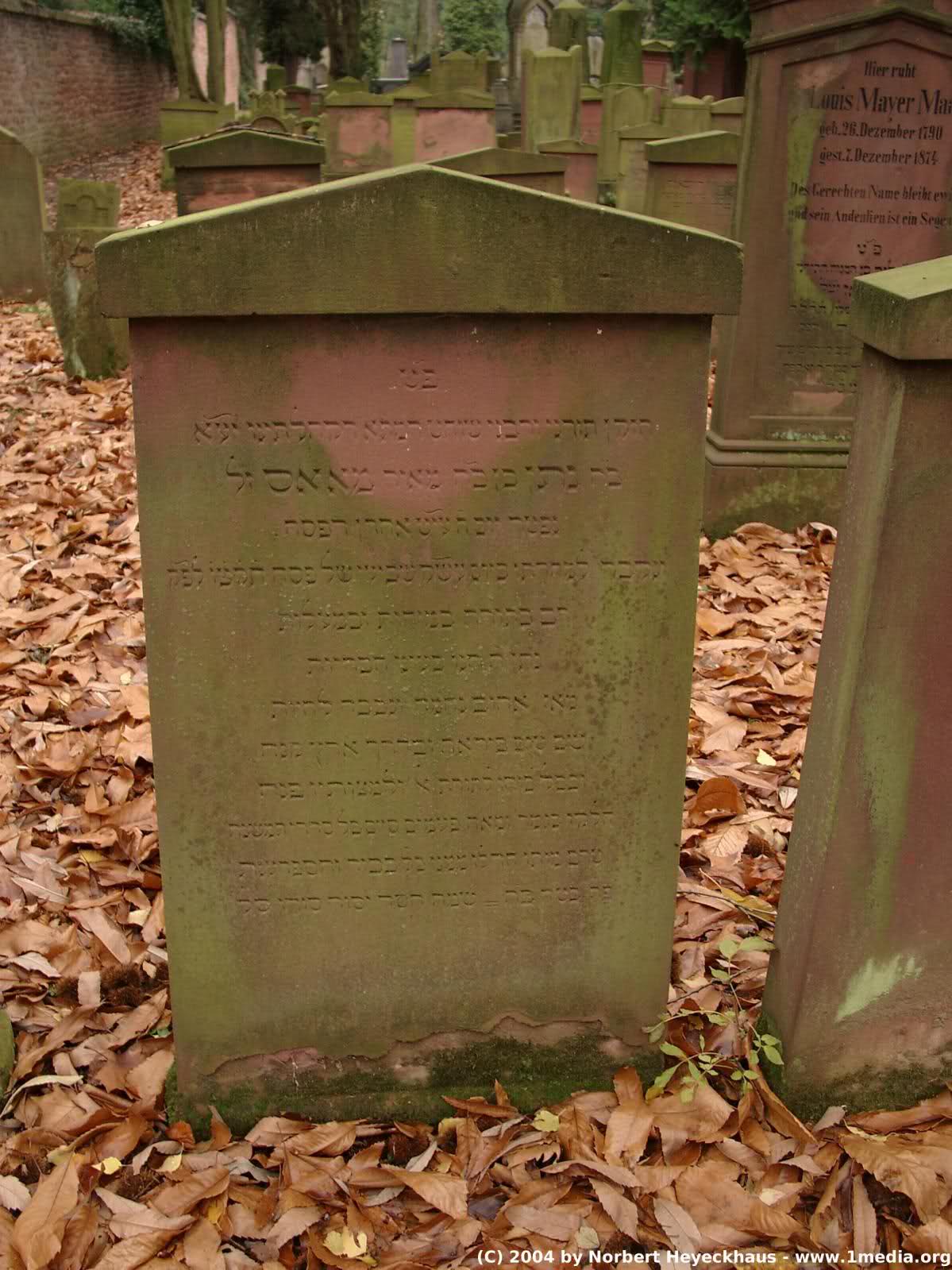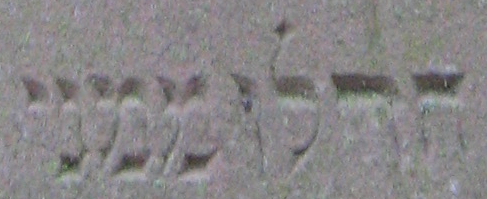I've recently been fortunate to find a photo of the gravestone of one of my ancestors, R' Nosson (ben Meir) Maas, Shochet of Frankfurt-am-Main (d. 1836). The inscription is quite laudatory:
פ"ט
הזקן תורני ורבני שוחט דמתא דקהלתינו יע"א
כ"ה נתן בן כ"ה מאיר מאאס ז"ל
נפטר יום ה' עי"ט אחר[ו]ן דפסח
ונקבר למחרתו ביום עש"ק שביעי של פסח תקצ"ו לפ"ק
רב בתורה במידות ובמעלות
נתן ה' חנו בעיני הבריות
מאז אהוב נחמד ונכבד להיות
שם טוב ביראה ובדרך ארץ קנה
ובכל כוחו לתורת א-ל ולמצותיו פנה
חלקו בגמר' ומאה פעמים סיים כל סדרי המשנה
...טרם מותו חדלו ממנו (?) כל כבוד
and that's as far as I can understand. Can anyone help me with the last line and a half of it?








